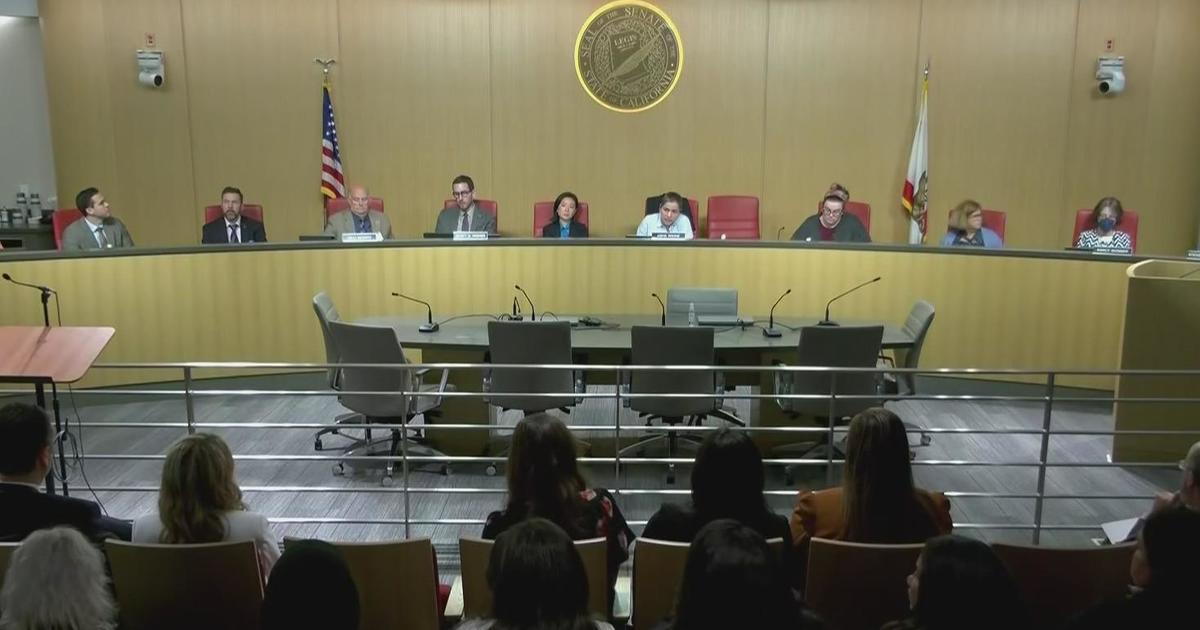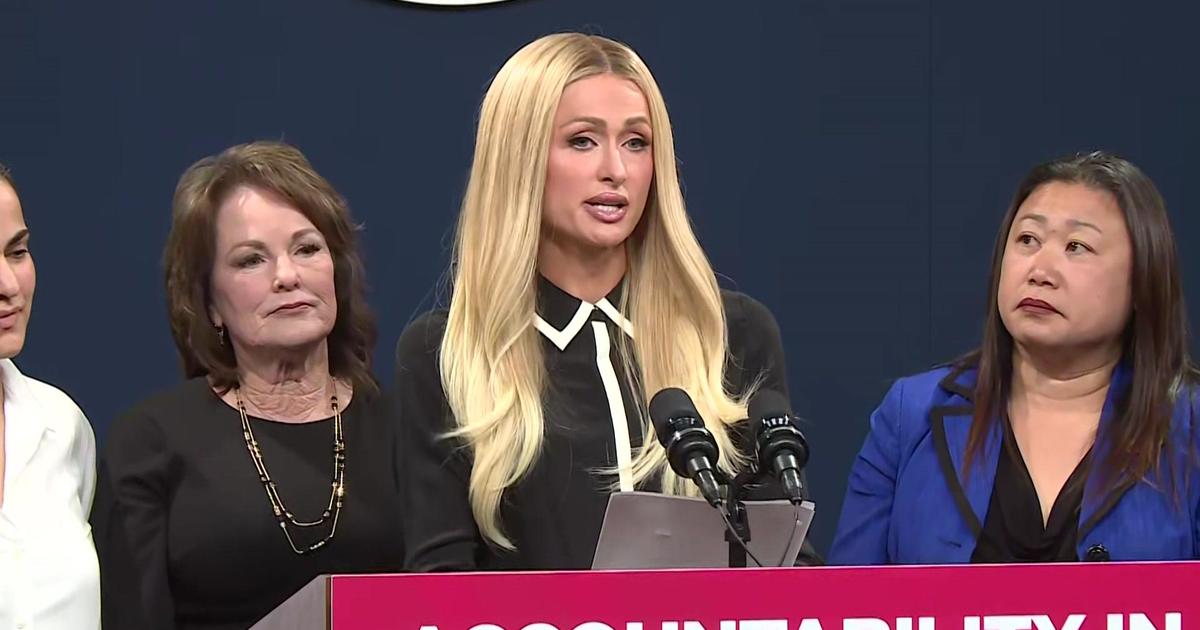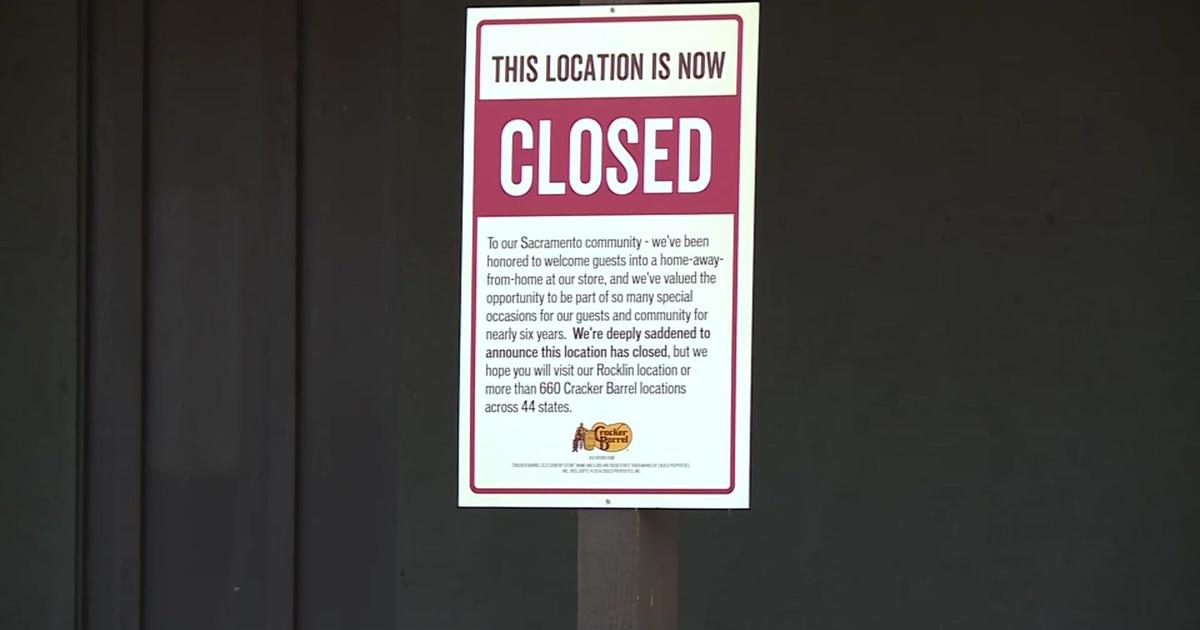California Regulators Restore Emissions-Cutting Fuel Rule
SACRAMENTO, Calif. (AP) - California regulators on Friday restored ambitious rules to cut transportation fuel emissions 10 percent within 5 years.
The rules further strengthen California's toughest-in-the-nation carbon emissions standards, but oil producers warn the changes could drive up costs for consumers at the gas pump.
The California Air Resources Board voted 9-0 to re-adopt its low-carbon fuel standard. The regulations have been on hold since 2009 because of a court fight.
The board says the change would cost a typical commuter $20 to $24 extra in 2017, increasing to $52 to $56 annually in 2020.
The rules require producers to cut the carbon content of fuels 10 percent by 2020 to help the state meet its emission-reductions goals.
Environmentalists and some business groups say the plan will encourage greater use of cleaner biofuels and electric vehicles. Oil producers say it's unworkable and too costly.
"The transportation sector is and will remain the largest source of greenhouse gases in the state of California but we've made some serious strides and we need to continue to build on those actions," Mary Nichols, chairwoman of the board, said before the vote.
The move to restore the program is not related to Volkswagen drawing international attention for violating separate federal and state rules that regulate emissions from vehicles.
The passage was a boost for Gov. Jerry Brown, who has vowed to intensify his fight against climate change after the oil lobby helped kill a Democratic legislative proposal earlier this month to slash statewide petroleum use by half in 15 years.
Unlike other rules the state has adopted requiring cleaner-burning fuel or more fuel-efficient vehicles, the standard, first proposed in a 2007 executive order from then-Gov. Arnold Schwarzenegger, calls for counting all the pollution required to deliver gasoline, diesel or alternative fuels to in-state consumers - from drilling a new oil well or planting corn to delivering it to gas stations.
In addition to tailpipe emissions, it includes factors such as whether an ethanol factory uses coal or natural gas to power production or an oil rig uses diesel fuel to drill.
Oil producers say the standard will impact consumers in the state with some of the highest gas prices in the nation as the companies try to comply with the mandate or face being shut out of the market.
Supporters say industry can afford to make it work. They believe the program will encourage greater use of cleaner biofuels and electric vehicles, which can be cheaper to operate than those powered by gasoline or diesel.
"This puts it back on track," Bill Magavern, policy director at Coalition for Clean Air, an environmental advocacy group, said after the vote. "We have other programs that address vehicle technologies and vehicle miles traveled, and this is the one that tells oil companies to reduce the carbon intensity of their fuels."
The Western States Petroleum Association, which represents oil companies, said there is not enough low-carbon biofuel to allow refiners to comply with the regulations.
All fuels are measured against a baseline pollution standard. If a fuel falls above or below the baseline, it generates a credit or deficit that other producers can buy and sell to meet the target.
It's up to fuel producers to figure out how to meet the goal, whether by changing production methods, using ethanol or electric vehicles for transportation or buying credits on the market.
Regulators are targeting transportation fuels because California's roughly 30 million vehicles account for about 40 percent of the state's emissions. The rest comes from generating electricity and industrial manufacturing, as well as commercial, residential and agricultural uses.
After the rule's initial adoption, out-of-state refiners and ethanol companies were among those who sued, arguing that transporting the fuels into California alone made them less competitive against in-state producers. They argued the law unconstitutionally limits interstate commerce.
The U.S. Supreme Court let stand a 2013 appeals court decision upholding the fuel standard.
Opponents continued to challenge the state's authority to regulate out-of-state production. Oil companies are also trying to block a similar standard enacted in Oregon, the only other state with a clean fuel standard.
Copyright 2015 The Associated Press.



